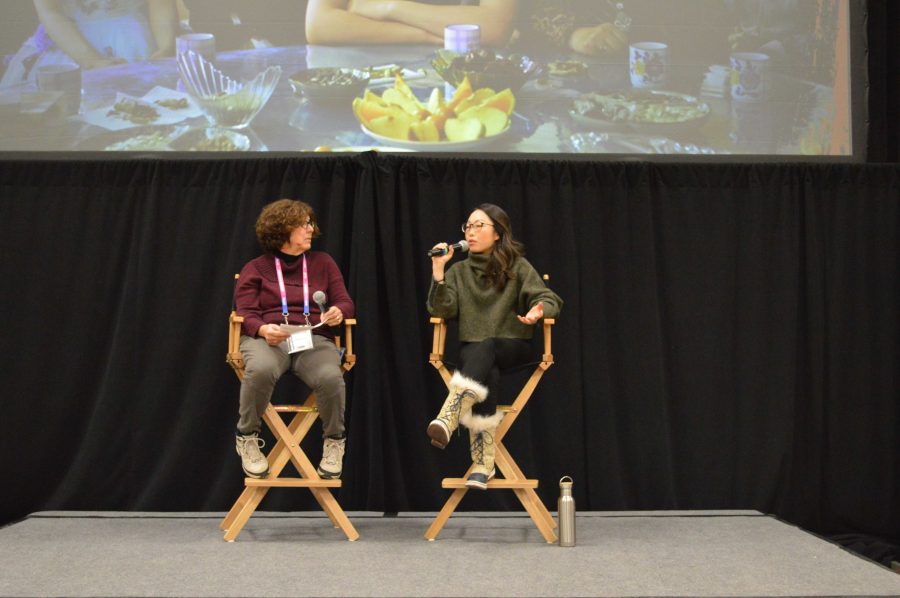The Sundance Film Festival isn’t the first place that you’d think that a group of Christians would gather. Sundance is more known for pride, celebrity and cutting-edge films than for explorations of faith. For the organizers and attendees of the 2019 Windrider Forum, however, Sundance is a perfect place to examine the Christian faith through the filmmaker’s lens.
The Windrider Institute “was established as a vehicle to promote the presentation and exploration of the human story through film and visual media” and “endeavors to intersect with a conversation already taking place in our culture — one with which people of faith can engage, and thereby enliven.” Although the Institute does not explicitly state on its website that it is a Christian organization, its partnerships with organizations like the Council for Christian Colleges and Universities and its explicitly Christian presentations show that it is a Christian group in all but name.
The Institute sponsors the Windrider International Student Film Festival, Windrider Productions, the Spirit of Windrider Award and the Windrider Forum at Sundance. Will Stoller-Lee, Dr. Craig Detweiler and John and Ed Priddy founded the Windrider Forum in 2005 “with the idea that the Sundance Film Festival could provide a dynamic learning laboratory for students, as Christians, to engage in a cultural dialogue as it takes shape.” The Forum runs concurrently with Sundance and officially partnered with the Sundance Institute this year. Many Christian colleges and universities send film professors and students who get credit for attending. The University of Utah didn’t send any film students, but some U students did attend with the St. Catherine of Siena Newman Center.
Each morning at Windrider begins with an inter-denominational Christian prayer. The Forum’s moderators then lead the students and other participants in a discussion about some of the most popular films at Sundance. One day’s discussion focused on the question of what pains the participants were experiencing during the festival. Many students had seen “Hail Satan?“ the previous day and participants shared how they were hurt by the laughter and applause that they heard during the public showing when the documentary criticized Christians. One participant shared that they heard a fellow member of the audience say that they were thankful that there were no Christians in their town. Rather than wallowing in hurt and indignation at the characterization of Christians, however, the Windrider participants said that they were upset because they knew that the audience and members of the Church of Satan portrayed in the documentary were wounded by Christians. The discussion continued from there with participants examining how they could help heal some of the pain that their fellow Christians had caused. This discussion about how the participants, as Christians, should respond to the pointed critique of Christianity exemplified Windrider’s mission of engaging with art from a Christian perspective.
Careful attention to the impact of Christianity on racial and social justice, suffering and the human condition has characterized my two years of attendance at Windrider. Participants share stories of the unprosecuted lynchings of their family members, their own sexual assaults and the ways in which faith has helped them deal with trauma. The festival encourages participants to realize that secular films are not an enemy to be defended against but a tool to tell stories about what it means to be human — a question that all people of faith attend to.
One way that the Forum examines this question is by inviting filmmakers to Q&A sessions to discuss their work. This is the heart of the Windrider Forum when students, professors and pastors get to ask filmmakers about both their craft and the stories that they tell. I attended the discussion with Lulu Wang, the director of the breakout film “The Farewell.” Wang’s dramedy about a family hiding a secret from their matriarch might seem like a strange choice for a Christian film festival. As Wang said, “The ridiculous is one step removed from the divine.” The moderator’s questions encouraged Wang to talk about the themes in her work, including questions about coexisting religions in China, Eastern and Western views of death and the relationship between grief and joy. Rather than trying to read an explicitly Christian meaning into the film, the audience engaged with Wang through questions about her technique, her identity as an Asian-American female filmmaker and her perspective on filmmaking.
One of Wang’s remarks hit on the heart of the Windrider Forum’s identity at the crossroads between film and religion. She said that movies and television are the most powerful mediums we have but we think more about how to make the most money rather than the messages we want to share and the stories we want to tell. The Windrider Forum approaches film from a Christian standpoint, but at its core, this faith-based perspective means that participants are interested in telling stories about the human condition — in all its pain and beauty. Windrider provides a welcome dose of soul-searching at Sundance, and anyone interested in the intersection of faith and art should consider attending next year.
This article is part of the Poynter College Media Project. Click here for more stories and information on the topic “Are U Mormon?”


